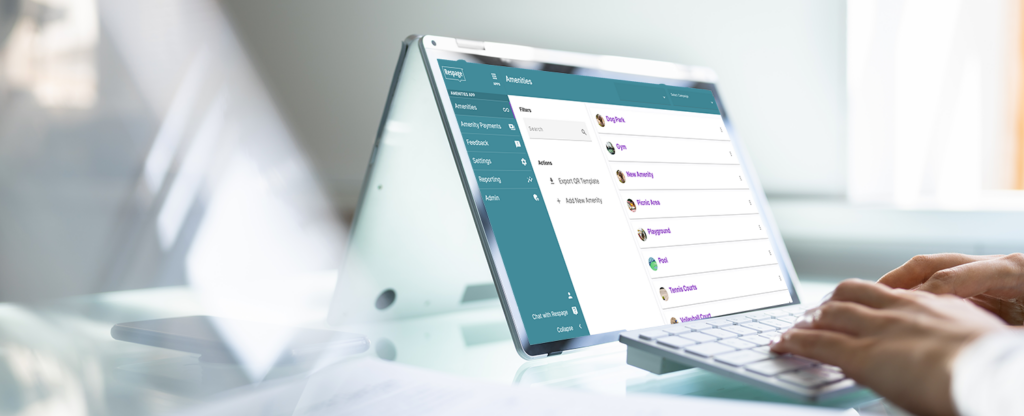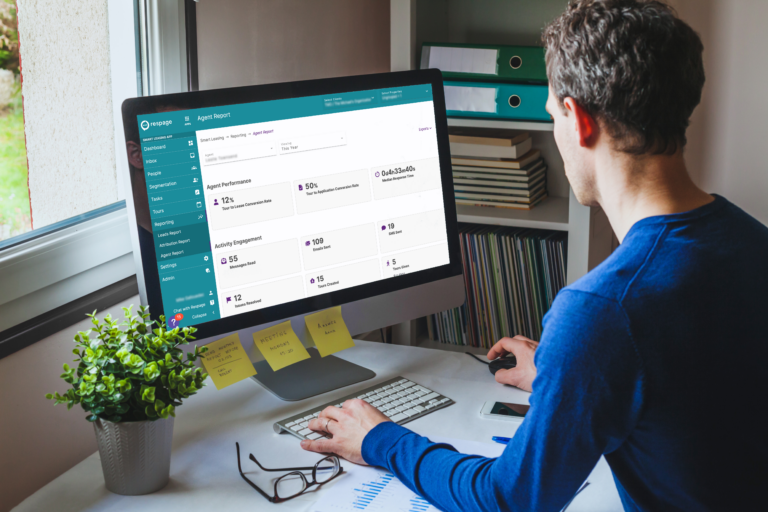The delta variant is raising concerns about new COVID-19 infections, particularly in areas with low vaccination rates, and apartment operators may be wondering how they can play a role in keeping residents safe.
As we’ve seen in many apartment communities across the country, property managers are encouraging residents to get vaccinated, and some have even arranged vaccine clinics on their properties to make it easy for residents to get the shot.
Some communities are also encouraging or requiring masks in common areas, even for residents who are vaccinated, as well as social distancing.
No one wants a replay of last summer; when it was common for swimming pools, fitness centers, and barbecue areas to be closed. In the year since, apartment amenity reservation platforms have emerged, which allow residents to book blocks of time to use an amenity in order to prevent overcrowding.
Some communities that adopted an amenity booking tool during 2020 have continued to utilize it, while others used it as a short-term response to the pandemic and have since phased it out.
In this post, we’ll go over the reasons why an apartment amenity reservation tool might be a smart idea for your community regardless of the status of the pandemic, as well as some reasons why it might not be (and the truth behind each point.)
Pros of using an apartment amenity scheduling tool
It prevents overcrowding.
Keeping residents socially distanced is a primary goal of an amenity reservation tool. Residents can book a block of time to use the amenity, which limits the number of people who can access an amenity at any given time, such as the pool or barbecue area. It also ensures that everyone has a turn, which can help keep the peace.
It provides usage data.
Amenities are important to residents, but are you sure that your community is providing the amenities residents really want? A good amenity booking platform can monitor how many residents have used an amenity during any given time—data a property manager can use to make decisions around which amenities to hold onto and which ones to leave behind.
It can keep residents healthy during future flu seasons.
The U.S. saw a sharp drop in flu cases earlier this year, which can be attributed to precautions taken to fight COVID-19, including wearing masks and social distancing. Having an amenity reservation tool in place could mean fewer flu cases in your community during the next flu season.
It can help to manage outdoor events.
Apartment communities that offer group workouts outdoors or other kinds of outdoor events can use an amenity reservation tool to help things run smoothly. Amenity scheduling tools can be used to collect RSVPs, ensuring that events won’t exceed capacity limits.
It can assist with package pickups.
As a result of the pandemic, people began ordering their necessities online and getting them delivered rather than shopping in person, and that habit is continuing. In response, some apartment communities are changing the way they handle package pickups. In order to maintain social distance, property managers are setting designated times for residents to pick up their packages from the rental office, front desk or package room. This can be easily handled with an amenity reservation tool.
It can make guest parking a breeze.
A common complaint among apartment residents is a lack of parking for guests. In some instances, this has hampered residents’ social lives and caused relationship tension. With an amenity booking system, residents can reserve a parking spot for guests and designate when they’ll arrive and leave, preventing vehicles from being towed or ticketed.
Cons of using an apartment amenity scheduling tool (that aren’t really cons!)
It lacks spontaneity.
Plans need to be made in advance when using amenity scheduling, so deciding in the moment to use the pool might not be possible. Or, is it? Despite the extra step that’s required to use an amenity, residents can still make a spur-of-the-moment reservation with little or no advance notice if no one else (or few people) are using the amenity at that time.
Residents have to wait their turn.
Any kind of change in a community process could cause disruption, and some residents won’t like having to plan their amenity usage in advance. However, start and end times for reservations are clearly defined, so the wait isn’t endless, and having extra space at the gym could be a bonus for some residents who don’t feel comfortable exercising in front of a lot of people.
It can be a hassle.
Some apartment communities might find that residents would rather not use an amenity if it means they have to book it in advance. If that’s the case, it’s possible that the amenities that are available in that community aren’t what residents really want. Property managers can analyze the usage data to guide their decisions about what amenities to keep and which ones to close.
Conclusion
Apartment amenity reservations became necessary for many communities at the start of the pandemic in order to maintain social distancing. But this technology is now being applied to other aspects of apartment life, bringing more value to property managers while ensuring that residents have a safe and enjoyable living experience. Respage’s Resident Amenity Scheduler is the most robust amenity scheduling tool in Multifamily. If you haven’t already implemented an apartment amenity scheduler, or would like to reinstate one within your community Respage can help!





